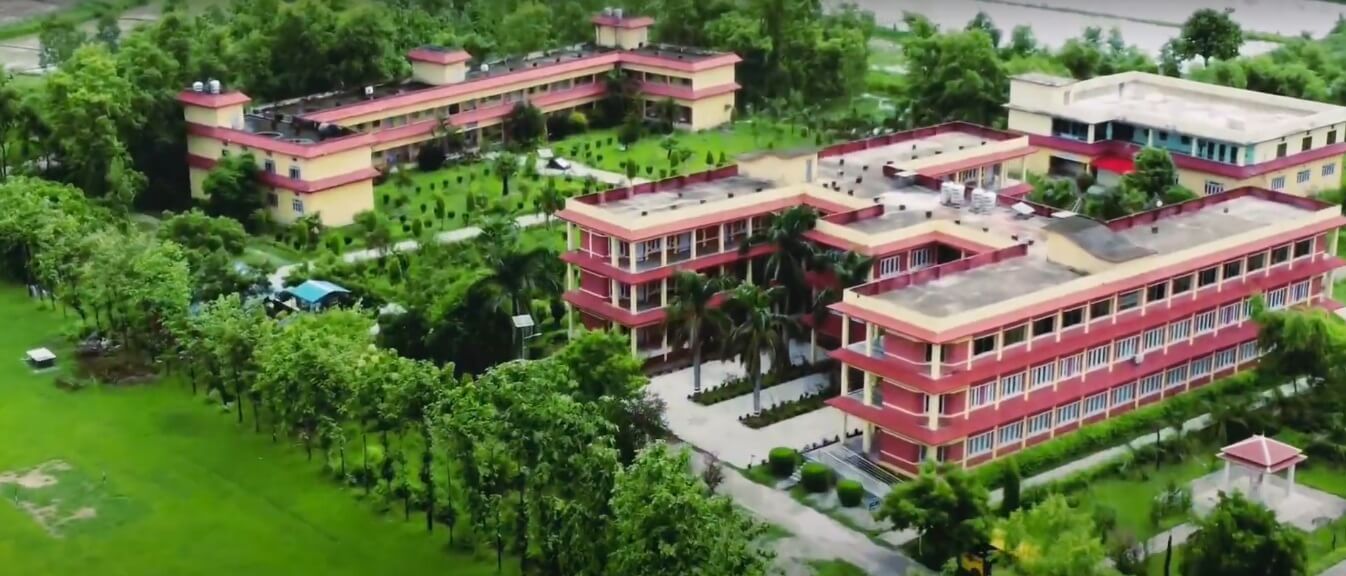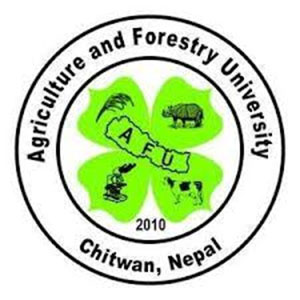Overview
BSc in Agriculture (BSc Ag) at Tikapur Multiple Campus
The Bachelor of Science in Agriculture (BSc Ag) program at Tikapur Multiple Campus (TMC) offers a comprehensive undergraduate education for students passionate about agricultural science and rural development in Nepal's Far-Western region. As a vital BSc Agriculture program in Nepal, this course, under Far Western University (FWU), provides in-depth knowledge of agricultural sciences, sustainable farming practices, and rural development strategies.
Located in Tikapur, Kailali, the TMC BSc Agriculture degree is designed for individuals aiming for careers in agricultural sectors, research, agribusiness, rural development, and sustainable agriculture. This Bachelor of Science Agriculture Nepal program emphasizes practical skills, scientific knowledge, and community engagement, preparing graduates to contribute to the modernization and sustainability of agriculture in Nepal.

Overview of the BSc Agriculture Program
The BSc Ag at Tikapur Multiple Campus is a four-year, semester-based undergraduate program providing a comprehensive agricultural science and technology education. Aligned with Far Western University standards, this FWU BSc Agriculture program balances theoretical knowledge with hands-on practical training, ensuring graduates are well-prepared for diverse roles in the agricultural sector and related industries. The program structure is designed to cover a wide range of agricultural disciplines, from crop and animal science to agricultural economics and rural sociology.
Curriculum Details
The BSc Agriculture curriculum is broad and practical, covering diverse aspects of agricultural science.
Core Courses
The BSc Ag program includes core courses across fundamental agricultural disciplines:
-
Principles of Agronomy: Crop production principles, soil management, water management, and sustainable agriculture practices.
-
Horticulture: Fruit and vegetable production, floriculture, landscaping, and post-harvest management.
-
Animal Science: Animal nutrition, livestock management, breeding, and health.
-
Plant Breeding and Genetics: Principles of plant breeding, genetics, crop improvement, and agricultural biotechnology.
-
Soil Science: Soil chemistry, soil fertility, conservation, and land management.
-
Entomology: Insect pest management, integrated pest management (IPM), and beneficial insects in agriculture.
-
Plant Pathology: Plant diseases, disease management, and plant protection strategies.
-
Agricultural Economics: Farm management, agricultural marketing, agribusiness, and agricultural policy.
-
Agricultural Extension and Rural Sociology: Agricultural extension methods, rural development principles, community development, and rural sociology.
-
Agricultural Engineering: Farm machinery, irrigation systems, post-harvest technology, and farm infrastructure.
-
Biochemistry and Crop Physiology: Plant biochemistry, plant physiology, and crop metabolic processes.
-
Seed Technology: Seed production, seed processing, seed quality control, and seed certification.
-
Agricultural Statistics and Research Methods: Statistical methods for agricultural research, experimental design, and data analysis.
-
Environmental Science and Agroecology: Environmental issues in agriculture, agroecological principles, and sustainable farming systems.
Specializations and Electives
The BSc Agriculture program may offer opportunities for specialization through elective courses in later semesters. Potential BSc Agriculture Specializations could include:
-
Agronomy and Crop Science: Advanced crop production, precision agriculture, sustainable cropping systems.
-
Horticulture and Floriculture: Protected cultivation, advanced fruit and vegetable production, ornamental horticulture.
-
Animal Production and Livestock Management: Dairy science, poultry production, animal nutrition, and animal health management.
-
Agricultural Economics and Agribusiness Management: Agricultural finance, agribusiness marketing, farm management, and agricultural policy analysis.
-
Plant Protection and Entomology: Advanced entomology, plant pathology, integrated pest and disease management.
-
Soil and Water Management: Soil conservation, irrigation engineering, watershed management, and soil fertility management.
The availability of specific BSc Agriculture curriculum specializations may vary, offering focused expertise within agricultural science.
Objectives of the BSc Agriculture Program
The main objectives of the BSc Agriculture program are to:
-
Provide a comprehensive foundation in agricultural science and technology.
-
Develop practical crop and animal production skills, farm management, and agribusiness.
-
Cultivate an understanding of sustainable agricultural practices and environmental stewardship.
-
Enhance analytical, problem-solving, and decision-making skills in agricultural contexts.
-
Promote knowledge of agricultural economics, marketing, and rural development.
-
Prepare graduates for diverse careers in the agricultural sector and contribute to rural prosperity.
Scope of the BSc Agriculture Program
The scope of the BSc Agriculture program is broad, preparing graduates for diverse career paths in:
-
Government agricultural services and departments (extension, research, policy)
-
Agribusiness companies (input supply, processing, marketing, retail)
-
Commercial farms and agricultural enterprises
-
Non-governmental organizations (NGOs) and development agencies focused on agriculture and rural development
-
Research institutions and agricultural universities
-
Banking and financial institutions (agricultural lending, insurance)
-
Agricultural consulting and advisory services
-
Entrepreneurship and farm ownership
Learning Outcomes of the BSc Agriculture Program
Upon completion of the BSc Agriculture learning outcomes, graduates will be able to:
-
Apply scientific principles to crop and animal production systems.
-
Manage farm operations efficiently and sustainably.
-
Diagnose and solve agricultural problems using scientific and technical knowledge.
-
Understand agricultural markets, economics, and agribusiness principles.
-
Promote sustainable farming practices and environmental conservation.
-
Communicate effectively with farmers, stakeholders, and the agricultural community.
-
Conduct agricultural research and contribute to innovation in the sector.
Skill Development Modules
The BSc Agriculture program integrates modules focused on essential BSc Agriculture skill development:
-
Practical Farming Skills: Fieldwork, farm operations, crop cultivation techniques, livestock handling, farm machinery operation.
-
Technical Skills in Agriculture: Soil testing, plant disease and pest diagnosis, irrigation management, data collection, and analysis in agricultural research.
-
Analytical and Problem-Solving Skills: Farm management decision-making, agribusiness analysis, and problem diagnosis in crop and animal production.
-
Communication and Extension Skills: Farmer training, extension methods, report writing, and presentation skills for agricultural audiences.
-
Agribusiness and Entrepreneurial Skills: Farm business planning, marketing agricultural products, agribusiness management, and entrepreneurship in agriculture.
Teaching Methodology
The BSc Agriculture teaching methodology is heavily practical and field-oriented, often including:
-
Lectures and classroom discussions
-
Laboratory sessions and practical exercises
-
Field visits to farms, agricultural research stations, and agribusiness enterprises
-
Hands-on farming experience and crop/animal production projects
-
Demonstrations and workshops on agricultural technologies and practices
-
Group projects and assignments related to farm management and agribusiness planning
-
Internships or attachments in agricultural organizations and farms
Faculty Expertise
The faculty expertise in the BSc Agriculture program at TMC includes qualified professors and lecturers with advanced degrees and extensive experience in various agricultural disciplines, including agronomy, horticulture, animal science, plant protection, soil science, agricultural economics, and agricultural engineering. Faculty are actively involved in agricultural research, extension activities, and community engagement in the agricultural sector.
Admission Requirements
Admission requirements for BSc Agriculture generally include:
-
Completion of 10+2, Class 12, or equivalent with a science stream (preferably with Biology) and minimum D+ grades in all subjects.
-
Successful performance in an entrance examination conducted by FWU or TMC (may include science-based aptitude tests, interviews, and agricultural knowledge assessments).
-
Meeting any other specific criteria set by FWU or TMC.
Career Opportunities
Career opportunities after BSc Agriculture are diverse and may include roles such as:
-
Agricultural Officer (Government Extension Services)
-
Farm Manager
-
Agribusiness Manager
-
Agricultural Research Scientist
-
Agricultural Consultant
-
Horticulturist
-
Livestock Farm Manager
-
Soil and Water Conservationist
-
Agricultural Marketing Specialist
-
Rural Development Officer
-
Agri-Entrepreneur
Student Life and Extracurricular Activities
Student life at TMC for BSc Agriculture students is enriched by opportunities to participate in agricultural clubs, farm visits, workshops, and agriculture and rural development seminars. Extracurricular activities on environmental sustainability, community service, and agricultural innovation enhance their agricultural education.
Scholarships and Financial Aid
Scholarships and financial aid opportunities may be awarded to meritorious and needy BSc Agriculture students who recognize the importance of supporting agricultural education. Various scholarships based on academic outstanding, financial need, and specific criteria may be offered.
Why Choose This Course?
Choose the BSc Agriculture program at TMC for:
-
Comprehensive and practical undergraduate education in agricultural science in Far-West Nepal.
-
Hands-on learning and extensive fieldwork opportunities.
-
Curriculum relevant to regional agricultural needs and sustainable farming practices.
-
Experienced faculty with expertise in diverse agricultural disciplines.
-
Preparation for diverse and impactful careers in the agricultural sector and rural development.
-
Affordable fees and accessible agricultural education in a community-focused campus.
Why Choose This College?
Tikapur Multiple Campus offers:
-
QAA-certified quality assurance, ensuring a commitment to high standards in agricultural education.
-
Community-centered and supportive learning environment, ideal for students interested in rural development.
-
Commitment to accessible and affordable higher education, making quality agricultural training reachable for students in the region.
-
Strong regional focus and dedication to contributing to the development and modernization of agriculture in Far-Western Nepal.
Conclusion
The BSc Ag program at Tikapur Multiple Campus is an excellent pathway for students seeking a practical, comprehensive, and career-oriented undergraduate education in agricultural science. With its balanced curriculum, emphasis on hands-on learning, experienced faculty, and dedication to regional agricultural development, the TMC BSc Agriculture program prepares graduates to be skilled professionals and leaders in the agricultural sector, contributing to the prosperity and sustainability of agriculture in Nepal.















